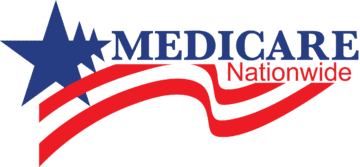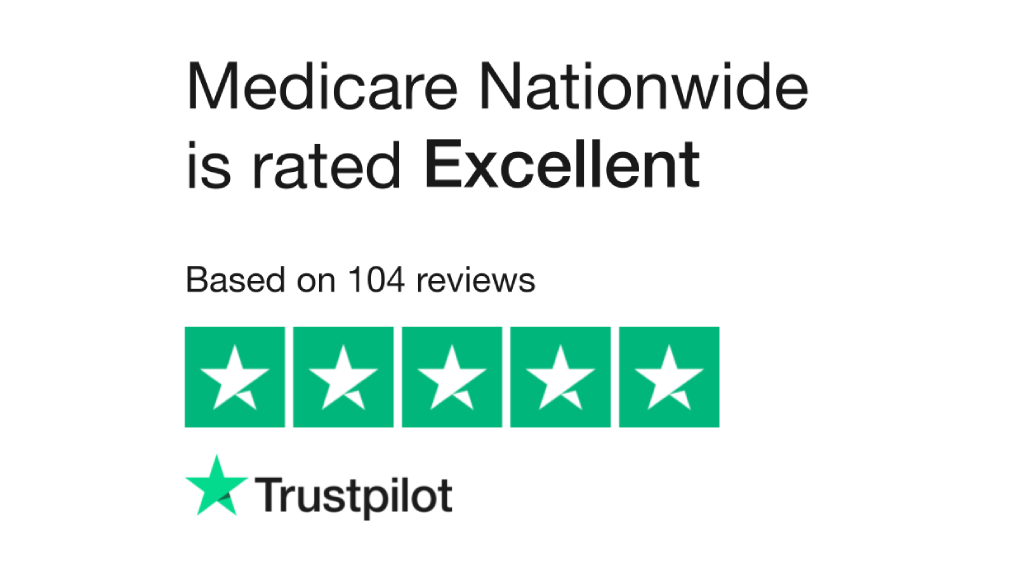Medicare Advantage Dual Eligible Special Needs Plans (D-SNPs) offer a vital healthcare solution for individuals who qualify for both Medicare and Medicaid, known as dual eligible beneficiaries. These plans are designed to address this group’s unique healthcare needs, providing a cohesive package that manages their Medicare Advantage and Medicaid benefits.

Understanding the different types of D-SNPs, such as those available in 2023 and those anticipated for 2025, is crucial for dual-eligible individuals seeking the most suitable healthcare coverage.
As Medicare Advantage evolves, beneficiaries should stay informed about each D-SNP type’s specific features, benefits, and eligibility requirements to make informed decisions about their healthcare, maximize their benefits, and improve their overall health outcomes.
Understanding D-SNPs
Dual Eligible Special Needs Plans (D-SNPs) are a specific category of Medicare Advantage plans tailored for dual-eligible beneficiaries—individuals who are simultaneously eligible for both Medicare and Medicaid benefits. These specialized plans are designed to provide a coordinated and comprehensive healthcare package that bridges the benefits of Medicare and Medicaid, targeting the unique needs of this population.
D-SNPs’ primary purpose is to streamline healthcare services for dual-eligible beneficiaries, ensuring they receive seamless access to all the medical, prescription drug, and ancillary services they are entitled to across both Medicare and Medicaid programs. This integrated approach aims to enhance the quality of care, improve health outcomes, and simplify the healthcare experience for dual-eligible individuals who often face complex health issues and socio-economic challenges.
D-SNPs facilitate coordinated care management, including personalized care plans and support from care coordinators who help beneficiaries navigate their healthcare services, making sure they receive appropriate care, manage chronic conditions effectively, and access preventative services. By aligning the benefits and services of Medicare and Medicaid under a single plan, D-SNPs eliminate the need for beneficiaries to manage two separate sets of health benefits, thereby reducing administrative burdens and improving healthcare accessibility.
Understanding Medicare Advantage D-SNPs and their purpose is essential for dual-eligible beneficiaries seeking to maximize their healthcare coverage through both Medicare and Medicaid. As these plans continue to evolve, staying informed about the available D-SNP options and their benefits is crucial for those looking to optimize their health and wellness journey.
Evolution of D-SNPs from 2023 to 2025
The landscape of Medicare Advantage Dual Eligible Special Needs Plans (D-SNPs) is dynamic, with updates and regulatory changes often introduced to enhance the integration of Medicare and Medicaid services for dual-eligible beneficiaries. Between 2023 and 2025, significant updates and changes in D-SNP types and regulations are anticipated, reflecting ongoing efforts to improve care coordination and health outcomes for this vulnerable population.
D-SNP Updates in 2023
In 2023, updates to Medicare Advantage D-SNPs focused on enhancing the integration of Medicare and Medicaid benefits, aiming to provide a more seamless healthcare experience for dual-eligible beneficiaries. These updates included stricter requirements for D-SNPs to establish more robust care coordination models. Additionally, there was a push towards greater transparency in plan offerings and benefits, ensuring beneficiaries could make informed decisions about their healthcare.
Federal Requirement | CO D-SNP | HIDE SNP | FIDE SNP | AIP |
Must hold a Medicare Advantage contract with CMS that meets minimum requirements for D-SNPs | Yes | Yes | Yes | Yes |
Must hold a contract with the state Medicaid agency in each state where the D-SNP operates, and those contracts must meet the minimum requirements described in 42 CFR 422.107 | Yes | Yes | Yes | Yes |
Must have a contract with the state Medicaid agency that meets the requirements of a managed care organization as defined in section 1903(m) of the Social Security Act | No | No | Yes | No |
May provide coverage of Medicaid services to full-benefit dually eligible enrollees via a Prepaid Inpatient Health Plan (PIHP) or a Prepaid Ambulatory Health Plan (PAHP) | Yes | Yes | No | Yes |
Must provide coverage of applicable Medicaid benefits to full-benefit dually eligible enrollees through the same legal entity that contracts with CMS to operate as an MA plan | Yes | Yes | No | Yes |
Must have a capitated contract with the state Medicaid agency to provide coverage of LTSS to full-benefit dually eligible enrollees, consistent with state policy | No | No | Yes | Yes |
Must have a capitated contract with the state Medicaid agency that provides coverage of a minimum of 180 days of nursing facility services to full-benefit dually eligible enrollees during the plan year | No | No | Yes | No |
Must have a capitated contract with the state Medicaid agency that provides coverage of behavioral health services to full-benefit dually eligible enrollees, consistent with state policy | No | No2 | Yes* | No |
Must have a capitated contract with the state Medicaid agency that provides coverage of Medicaid primary and acute care benefits | No | No | Yes | No3 |
Must operate with exclusively aligned enrollment | No | No | Yes* | Yes |
Must implement unified plan-level appeal and grievance processes in accordance with the requirements at 42 CFR 422.107(c)(9), 422.629 through 422.634, 438.210, 438.400, and 438.402 | No | No | Yes* | Yes |
Must notify the state (or the state’s designee) of acute hospital and skilled nursing facility admissions for a designated group of “high risk” full-benefit dually eligible enrollees in accordance with the requirements described at 42 CFR 422.107(d) | Yes | No | No | No |
This appointment is meant to alleviate any concerns and there is no-cost or obligation to make a change.
Anticipated D-SNP Changes in 2025
Looking ahead to 2025, further changes in Medicare policies are expected to shape the structure and operation of D-SNPs. These may include:
- Enhanced Integration Requirements: Anticipated regulations may require D-SNPs to demonstrate even higher levels of integration with state Medicaid programs, potentially including standardized coordination practices across all states.
- Expansion of Value-Based Care Models: Medicare policies are likely to increasingly encourage D-SNPs to adopt value-based care models, which reward healthcare providers for the quality of care provided rather than the quantity of services.
- Increased Beneficiary Protections: New regulations may focus on strengthening protections for dual-eligible beneficiaries, ensuring they have access to necessary services without facing additional barriers or complexities.
- Innovative Care Coordination Strategies: With an emphasis on leveraging technology and data analytics, D-SNPs might be required to implement innovative strategies to improve care coordination and management for dual-eligible individuals.
These updates and changes reflect a broader trend towards improving the integration of services for dual-eligible beneficiaries, aiming to reduce healthcare disparities and provide a more cohesive care experience. Beneficiaries, healthcare providers, and policymakers alike must stay informed about these evolving regulations and policies to navigate the changing landscape of Medicare Advantage D-SNPs effectively.
Types of D-SNPs in 2023
The Medicare Advantage Dual Eligible Special Needs Plans (D-SNPs) landscape in 2023 offers a range of plan types, each designed to cater to the specific needs of dual-eligible beneficiaries. These plans aim to provide a coordinated care experience, integrating Medicare and Medicaid benefits for individuals who qualify for both. Understanding the nuances of each D-SNP type can help beneficiaries choose the plan that best fits their healthcare needs.
1. Fully Integrated D-SNPs (FIDE SNPs)
Fully Integrated D-SNPs are designed to provide an exceptionally high level of coordination between Medicare and Medicaid services. These plans offer a seamless healthcare experience for beneficiaries by integrating all the services that dual-eligible individuals are entitled to under both programs. The benefits of FIDE SNPs include comprehensive care management, which covers a wide range of medical, social, and long-term care services. This integration ensures that care is not only accessible but also effectively managed across the entire spectrum of beneficiary needs, potentially leading to better health outcomes and higher beneficiary satisfaction.
2. Highly Integrated Dual Eligible SNPs (HIDE SNPs)
Highly Integrated D-SNPs offer a significant level of integration between Medicare and Medicaid benefits, although they might not provide the same extent of coordination as FIDE SNPs. The advantages of HIDE SNPs include enhanced care coordination and easier access to a broad array of healthcare services. These plans are structured to facilitate better communication between healthcare providers, thereby ensuring that dual-eligible beneficiaries receive timely and appropriate care. HIDE SNPs aim to improve the overall healthcare experience for dual-eligible individuals by reducing the complexities often associated with navigating multiple healthcare systems.
3. Other D-SNP Types in 2023
In addition to FIDE and HIDE SNPs, there are other D-SNP types available in 2023, each tailored to meet specific beneficiary needs or regional healthcare models. These may include plans that focus on particular chronic conditions, offering specialized care management and support services targeted at improving health outcomes for beneficiaries with those conditions. Other D-SNPs might emphasize local partnerships with Medicaid programs to provide tailored services that address the social determinants of health impacting dual-eligible beneficiaries.
Each of these D-SNP types reflects the commitment to improving care coordination and accessibility for dual-eligible beneficiaries, acknowledging the diverse needs of this population. As the healthcare landscape continues to evolve, these D-SNPs play a crucial role in providing integrated, beneficiary-centered care, ensuring that dual-eligible individuals have the support they need to navigate their healthcare effectively.
Types of D-SNPs in 2025
Looking ahead to 2025, the landscape of Medicare Advantage Dual Eligible Special Needs Plans (D-SNPs) is expected to undergo significant changes and introduce new plan types, influenced by evolving trends and proposed regulations. These anticipated developments are aimed at further enhancing the integration and delivery of healthcare services for dual-eligible beneficiaries, addressing both their medical and social needs more effectively.
D-SNP Forecast for 2025
Enhanced Integration Models
One of the key trends expected by 2025 is the introduction of even more integrated Medicare Advantage D-SNP models. Building on the foundation laid by Fully Integrated D-SNPs (FIDE SNPs) and Highly Integrated Dual Eligible SNPs (HIDE SNPs), these new models will likely offer unprecedented levels of coordination between Medicare and Medicaid. The goal is to eliminate any remaining barriers to seamless care for dual-eligible beneficiaries, ensuring that transitions between care settings are smooth and that beneficiaries receive holistic support tailored to their specific needs.
Focus on Social Determinants of Health
Upcoming D-SNP types are also anticipated to place a stronger emphasis on addressing social determinants of health, recognizing the profound impact these factors have on health outcomes. Plans may incorporate innovative strategies to connect beneficiaries with community resources, housing support, nutrition services, and transportation, directly addressing the root causes of health disparities among dual-eligible populations.
Adoption of Value-Based Care
The move towards value-based care models is expected to accelerate, with D-SNPs increasingly incentivized to focus on quality of care over quantity. This shift aims to improve patient outcomes while controlling costs, encouraging plans to implement preventative care measures, chronic disease management programs, and personalized care plans.
Technology-Driven Solutions
Advancements in technology are poised to play a crucial role in the evolution of D-SNPs by 2025. Telehealth services, remote patient monitoring, and data analytics are expected to be more deeply integrated into Medicare Advantage D-SNP offerings, enhancing access to care and enabling more data-driven decision-making. These technology-driven solutions can provide dual-eligible beneficiaries with more flexible care options and better support for care coordination and management.
Regulatory Changes
Anticipated regulatory changes are likely to support these trends, with policies focusing on improving plan accountability, transparency, and beneficiary protections. Regulations may also encourage innovation in care delivery and integration efforts, ensuring that D-SNPs are better equipped to meet the complex needs of dual-eligible beneficiaries.
Choosing the right Dual-Eligible Special Needs Plan (D-SNP) is a critical decision for beneficiaries who qualify for both Medicare and Medicaid. This choice can significantly impact the quality of healthcare services received and the ease with which beneficiaries can navigate the healthcare system. Understanding the various aspects of D-SNPs and considering personal healthcare needs are essential steps in making an informed decision.
Choosing the Right D-SNP
Health Care Needs
Evaluate your current health care needs, including any chronic conditions, to ensure the D-SNP offers appropriate coverage. Look for plans that provide comprehensive care coordination, especially if managing multiple health conditions, to ensure all your healthcare providers communicate effectively about your care.
Plan Benefits
Compare the additional benefits offered by different D-SNPs beyond the standard Medicare benefits. Some plans may offer extra benefits such as dental, vision, and hearing care, wellness programs, or transportation services, which can significantly enhance your quality of life.
Provider Network
Check the Medicare Advantage D-SNP’s provider network to ensure your preferred doctors, specialists, and hospitals are included. If you have established relationships with healthcare providers, selecting a plan that includes them in its network can maintain continuity of care.
Prescription Drug Coverage
Assess the plan’s formulary to confirm it covers your current medications. It is also crucial to understand the cost-sharing structure for prescription drugs, including any deductibles or co-pays, to avoid unexpected expenses.
Quality Ratings
Examine Medicare’s quality ratings for the plan, focusing on areas most relevant to your health needs. These ratings can give insight into the plan’s performance in various aspects, including preventive care, chronic disease management, and member satisfaction.
Costs
Understand all the costs associated with the D-SNP, including premiums, deductibles, co-pays, and out-of-pocket maximums. While dual-eligible beneficiaries often have reduced costs, it is important to know any expenses you might be responsible for.
Plan Restrictions
Be aware of any plan restrictions, such as needing referrals to see specialists or prior authorizations for certain services. Knowing these details upfront can help you gauge how easily you can access needed care.
The Impact of D-SNPs on Healthcare Access
Dual-eligible Special Needs Plans (D-SNPs) play a crucial role in enhancing healthcare access for dual-eligible individuals. They bridge the gap between Medicare and Medicaid benefits to offer a more coordinated and comprehensive healthcare experience. These specialized plans are designed specifically for those who qualify for both Medicare and Medicaid, aiming to simplify the healthcare journey and address the unique needs of this population.
One primary way D-SNPs improve healthcare access is by providing a single point of contact for all health and drug benefits. This eliminates the confusion and administrative burden that can come from managing separate Medicare and Medicaid plans. This integration ensures that beneficiaries receive timely access to necessary medical services, including preventive care, primary care, hospital services, and prescription drugs, without the need to navigate multiple systems or face conflicting coverage criteria.
Medicare Advantage D-SNP healthcare access enhancements include the coordination of care services, which is a cornerstone of D-SNP plans. Care coordinators or teams help manage beneficiaries’ healthcare needs, from scheduling appointments to ensuring that healthcare providers are aware of all aspects of a patient’s medical history and current needs. This level of care coordination is particularly beneficial for dual-eligible individuals who often have complex health conditions, as it helps identify health issues early, prevent avoidable hospitalizations, and improve overall health outcomes.
Summary
Understanding the nuances of Dual Eligible Special Needs Plans (D-SNPs) is crucial for those eligible for Medicare and Medicaid. We’ve covered D-SNPs’ importance in improving healthcare access, outlined the types available, including Fully Integrated and Highly Integrated D-SNPs, and discussed the anticipated updates for 2023 to 2025. Staying informed on D-SNP types and updates ensures that beneficiaries can choose the plan that best fits their healthcare needs.
Consider consulting with a healthcare advisor for personalized guidance on selecting the right Medicare Advantage D-SNP. Their expertise can help you navigate D-SNPs’ complexities, ensuring you make an informed decision tailored to your healthcare requirements. Reach out to a healthcare advisor today to optimize your healthcare coverage.
To gain further insights into special needs plans (SNPs), please feel free to reach out to one of our reliable representatives directly at 1-888-559-0103.

